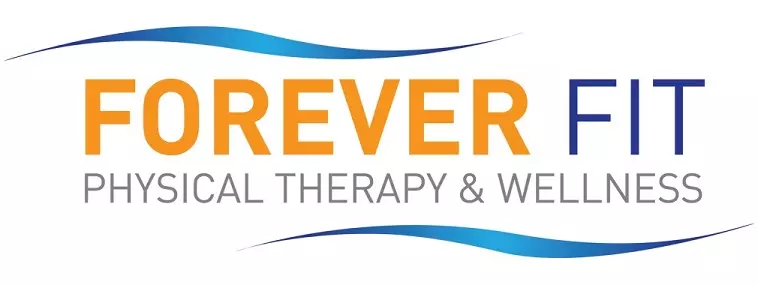Can a pinched nerve in the neck cause headaches?
Headaches can stem from all sorts of factors. From staring at a screen too long to being overwhelmed by stress, it’s not unusual to experience pain in your head from time to time. For some people, headaches are a recurring pain — approximately 1 in 20 adults experiences a headache almost every day.
Pinched nerves are also common and can occur in various parts of the body, including the neck. But can a pinched nerve in the neck be connected to your headache? The answer is yes.
Read on to learn about the basics of pinched nerves, how a pinched nerve in the neck can result in headaches and the best treatment options to alleviate the pain.
What is a pinched nerve?
Cervical radiculopathy, commonly known as a pinched nerve, refers to damage or injury to nerve roots where they branch out from the spine. When the nerve has too much pressure from the surrounding tissue, it becomes compressed, resulting in pain and reduced mobility.
Pinched nerves are most common in the spinal regions, but they can also occur throughout the arm.
Pinched nerves are common in the:
- Cervical spine (neck).
- Thoracic spine (upper middle back).
- Lumbar region (lower back).
- Hand.
- Wrist.
- Elbow.
Symptoms and potential causes of a pinched nerve in the neck
Not only can a pinched nerve cause neck pain and muscle spasms, but it can also decrease your range of motion, making it hard to nod your head or turn from side to side. A pinched nerve can have a variety of symptoms, which can worsen while you sleep, including:
- Sharp, radiating pain.
- Numbness.
- Pins-and-needles sensation (paresthesia).
- Muscle weakness.
There are a few potential ways that you can develop a pinched nerve in the neck. Some causes are due to general wear and tear; others are conditions or injuries that may need further medical assistance.
Potential causes of a pinched neck nerve include:
- Awkward sleeping positions.
- Stress from repetitive movements.
- Slipped or herniated disc.
- Injury.
- Osteoarthritis.
The connection between pinched nerves in the neck and headaches
When there’s a pinched nerve in your neck, also referred to as the cervical spine region, one of the most common symptoms you may experience is a cervicogenic headache. While some types of headaches can stem from eyestrain or tiredness, cervicogenic headaches come from problems with the neck’s muscles, nerves and bones.
This type of headache is referred pain, which means that it feels like it’s coming from your head, but the ache actually stems from soft tissue or bony structures in the neck.
Symptoms of cervicogenic headaches that can stem from a pinched nerve in the neck include:
- Throbbing pain.
- Pain on half of your head or face.
- Stiffness.
- Pain around the eyes.
- Pain while sneezing or coughing.
Treating a pinched nerve in the neck that causes headaches
It may be tempting to only treat the ache in your head if it seems like that’s where a majority of the pain is manifesting. But when it comes to a pinched nerve, you need to tackle the source of the pain to increase your neck’s range of motion and reduce the risk of future injury.
There are a few treatment options for a pinched nerve in the neck that you can try. While some of the treatments can be done from the comfort of your home, others will require the assistance of a medical professional.
Treatment options for a pinched nerve in the neck that’s causing headaches include:
- Assistive devices — Your health care provider may recommend that you wear an assistive device, such as a soft cervical collar, to help ease the pressure off the nerves by reducing your neck movement. This should only be utilized for very short periods of time to provide symptom relief while exploring other options.
- Medication — For quick and effective temporary pain relief, ask your doctor about taking a muscle relaxer or nonsteroidal anti-inflammatory drugs such as ibuprofen and naproxen. They may also recommend corticosteroids, which are steroids that are often administered by injection.
- Electrical stimulation — A common modality used in physical therapy to alleviate neck pain is electrical stimulation. If the pinched nerve is caused by a muscle placing excessive pressure on the nerve, the pulses of electricity can cause the muscle to contract and release the tension.
- Exercises — By doing neck stretching and strengthening exercises, you may not only help alleviate your neck pain and increase its mobility, but you can also help prevent the risk of future neck injury. A physical therapist can walk you through exercises that will help increase your neck’s range of motion and decrease the pressure on the nerve.
Forever Fit can treat a pinched nerve in the neck that causes headaches
Headaches are always frustrating because the pain and stiffness can make it hard to complete the simplest daily tasks. It’s even more uncomfortable when your headache is coupled with a pinched nerve. When your pinched nerve in the neck causes a cervicogenic headache, we can help you tackle the source and help alleviate pain in both areas.
Contact our team today for more information or to schedule an initial appointment.

